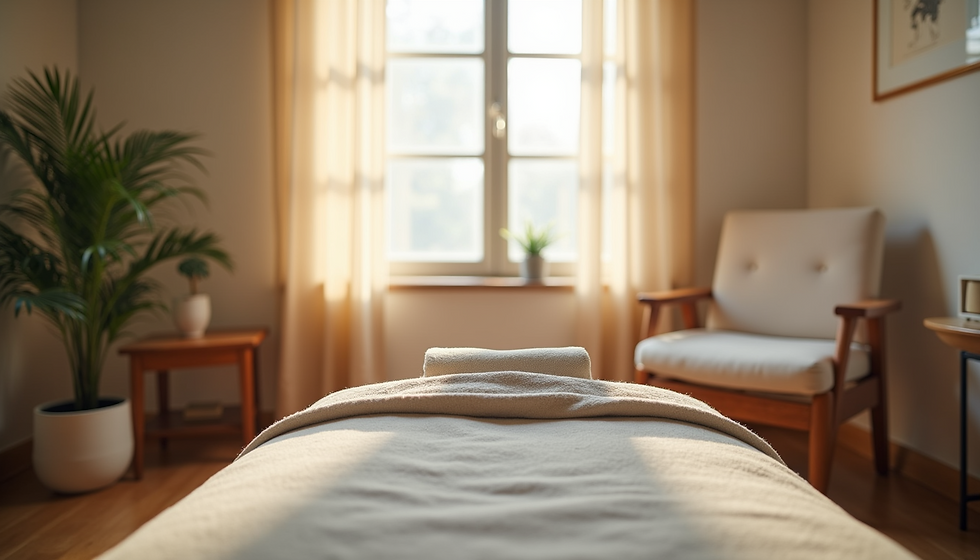Helping Teens Deal with Anxiety: Tips and Tricks
- Shuree Waggoner LMHC

- Feb 6, 2025
- 3 min read
Spotting and Managing Anxiety in Teens
Being a teenager is tough. With all the changes, challenges, and new experiences, it's no wonder anxiety is a thing. This blog aims to highlight what causes anxiety in teens, how to recognize it, and some practical ways to help reduce it.
What Causes Anxiety in Teens?
There are many reasons why teens might feel anxious. Knowing these can help you understand and support them better.
School Pressure
Trying to do well in school can be a huge source of stress. High expectations from parents, teachers, and peer pressure can make teens feel like they have to be perfect, leading to anxiety.
Social Stuff
Making friends, dealing with relationships, and trying to fit in can be really hard. The fear of being left out or bullied can make teens feel extra anxious.
Family Issues
Things like divorce, money problems, parental conflict, substance abuse within the home, neglect, inconsistent parenting can significantly contribute to a teen's anxiety levels. Home life plays a big role in a teen's mental health.
Big Life Changes
Moving to a new place, switching schools, or going from middle school to high school can be stressful and make teens feel anxious as they adjust to new environments.
Signs of Anxiety in Teens
It's important to know the signs of anxiety so you can help early on. Teens might not always say they're struggling, so keep an eye on their behavior and emotions.
Physical Signs
· Frequent headaches or stomachaches with no clear cause
· Excessive sweating or trembling
· Rapid heartbeat or shortness of breath
· Feeling tired or having trouble sleeping
Emotional Signs
· Constantly worrying or being afraid
· Getting irritated or having mood swings
· Always feeling restless or on edge
· Low self-esteem and confidence
Behavioral Signs
· Avoiding social situations or activities they used to enjoy
· Grades dropping
· Always needing reassurance
· Pulling away from family and friends

What Can Help Teens Deal with Anxiety
There are lots of ways for helping teens deal with anxiety.
Mindfulness and Relaxation
Doing things like deep breathing exercises, progressive muscle relaxation, and mindfulness meditation can help teens relax and reduce physical symptoms of anxiety.
Physical Activity
Regular exercise, whether it's sports, yoga, or just going for a walk, can really boost mood and reduce anxiety. Exercise releases endorphins, which are natural stress-relievers.
Good Sleep Habits
Encouraging a regular sleep schedule and a relaxing bedtime routine can help improve sleep quality, which is often messed up by anxiety.
Talking It Out
Creating a safe space for teens to talk about their fears and concerns without judgment is super helpful. Listening and validating their feelings can make them feel understood and supported.
Journaling
Writing down thoughts and feelings in a journal can help teens process their emotions and identify what triggers their anxiety.
Time Management
Teaching teens how to prioritize tasks, break projects into smaller steps, and avoid procrastination can make them feel less overwhelmed.
By understanding what causes anxiety and recognizing the signs, you can better support your teen during this challenging time. Using these tips can help give teens the tools they need to manage anxiety and thrive during their teenage years.
Healthy Sleep Habits
Encouraging a consistent sleep schedule and creating a relaxing bedtime routine can improve sleep quality, which is often disrupted by anxiety.
Open Communication
Providing a safe space for teens to express their fears and concerns without judgment can be incredibly beneficial. Listening actively and validating their feelings can help them feel understood and supported.
Professional Help Can Help Teens Deal With Anxiety.
Sometimes, seeing a mental health professional is necessary. Therapists can offer personalized strategies and coping mechanisms to manage anxiety effectively.




